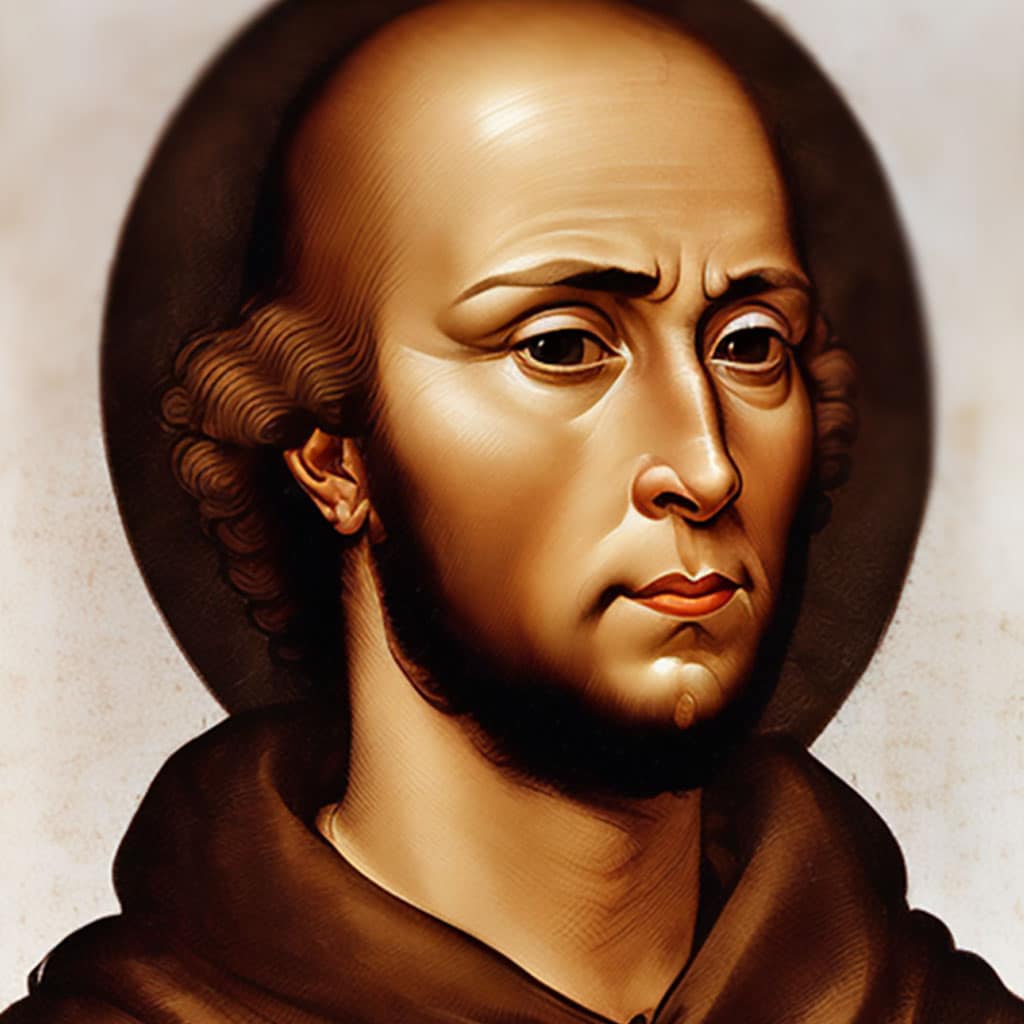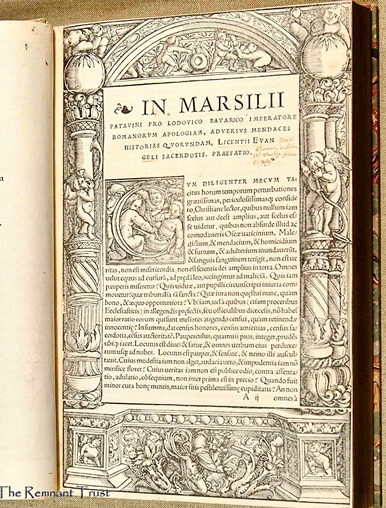REMNANT TRUST COLLECTION
Marsilius of Padua

“I say further that it is by the same authority that laws and anything else instituted by election must receive any addition or subtraction or even total overhaul, any interpretation and any suspension: depending on the demands of time and place and other circumstances that might make one of these measures opportune for the sake of the common advantage in such matters.”
– Padua
b. 1275 CE – d. 1342 CE
Marsilio dei Mainardini, also known as Marsilius of Padua, was the son of a notary, and he received his early education in Padua, completing his arts degree and presumably a degree in medicine at the local university.
Marsilius soon moved north to the leading university of his day, the University of Paris, where he became a rector in 1313. The years at Paris, as first a student, then a teacher, were formative for Marsilius as he met other theologians and published his extensive treatise on political power, the Defensor Pacis in 1324. In this work, Marsilius attacked many of the arguments used to support the political and temporal authority of the papacy. Going beyond this, Marsilius further attacked the absolute authority of the papacy within the administrative structure of the Church.
The principal idea upon which Marsilius established his political theory was the idea of popular sovereignty. All power is ultimately vested in the people. The secular monarch exercises his political authority not because he receives it as a divine right but because he derives it from the citizens of the state.

